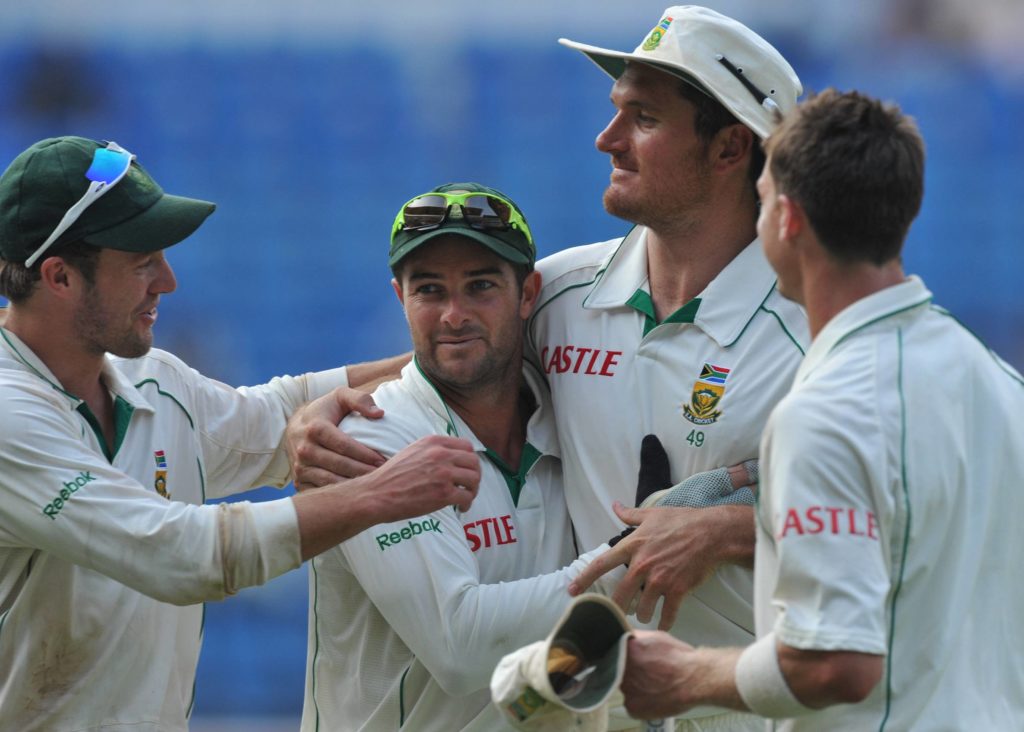Graeme Smith and AB de Villiers’ responses to allegations made against them at the Social Justice and Nation Building hearings will define the success or failure of this process, writes RYAN VREDE.
The deadline for the submission of responses was 23 August, but has been extended to 3 September, with the hearings set to restart the following week.
Reports indicate that De Villiers, who was accused of undue influence on team selection during his career in various testimonies, has already submitted a written response. De Villiers’ lawyer told ESPNcricinfo.com that his client had not been formally informed of the specific allegations against him, adding that once this was clarified, he would need adequate time to respond comprehensively.
Smith, too, has been implicated in numerous testimonies. In 2020, Smith, in an Instagram post that has since been removed, responded to Thami Tsolekile’s claims that he had blocked his selection in 2013. Smith then made an official statement on the matter, saying: “Almost every player I have come across feels that they could have contributed more,” the former Proteas skipper and now CSA director of cricket wrote.
“Unfortunately, Thami was a wicketkeeper, which meant he was always only fighting for one position. I can understand how frustrating that must have been, and there have been several other excellent wicketkeepers that South African cricket never saw on an international stage, because keepers tend to stay in a team for long periods of time.”
There are others who have been implicated in the testimony at the hearings, but their responses pale in comparison in terms of public interest and how the process will be viewed, when compared with what De Villiers and Smith will say on the record.
Their former teammate and friend, Mark Boucher, has already submitted two sworn affidavits, as well as a follow-up statement in which he admitted to racially offensive behaviour related to a vile song directed at former teammate Paul Adams.
I was deeply disappointed with Boucher’s response to the allegations Adams made. He initially vehemently denied being involved in any racially offensive behaviour, then later “clarified” that he now understands his role in the degradation of Adams.
This apology was delivered clinically, in the manner you’d expect one funnelled through the mind of a legal team would be. It lacked empathy, heart, and the contrition that comes from a process of hard introspection.
I previously wrote that Boucher being young and lacking the understanding of his behaviour being offensive would have been understandable, had he shown some contrition and explained what he’d learned in the time between the incident/s and now. Instead, he issued a broad apology in one affidavit and denied being a racist or engaging in racially offensive behaviour as it pertains to Adams’ testimony.
I hope Smith and De Villiers opt for a different approach.
I understand the fear that governs their thinking at this stage. I’d imagine that being accused of racism, racially offensive behaviour or racial prejudice must be traumatic. This is especially true if they have blindspots for subtle expressions of these things. In this case, the disconnect between who they think they are, and who they’re accused of being, would heighten their trauma. I understand how that would send someone into a defensive state.
Defending themselves against blatant lies designed to defame their character is necessary, if this is the case. However, if there was some culpability on their part, I hope they are able to pivot from the defensive stance described above and, through a process of intense introspection, publicly acknowledge their roles in causing pain to others in an authentic and heartfelt way.
I’ve never wanted the SJN to be a witch-hunt against white players, coaches and officials. What would the point of that be? If the objective is reconciliation through conversation, then those who testify need to have grace for growth in those whom they implicate their testimony.
Smith and De Villiers have a chance to do what Boucher didn’t. I hope they do, because their response can salvage what is quickly descending into a process that is being defined by pain, when it could be defined by reconciliation which paves the way for future progress.







